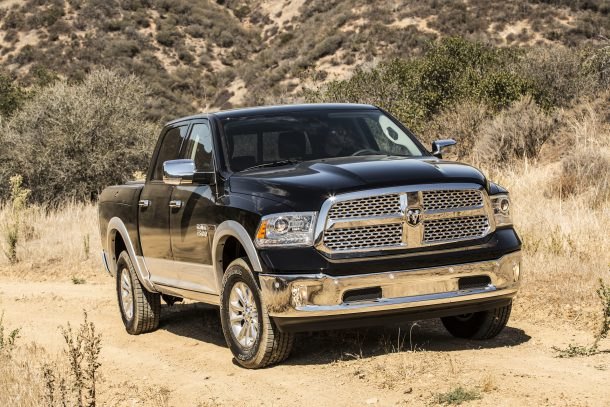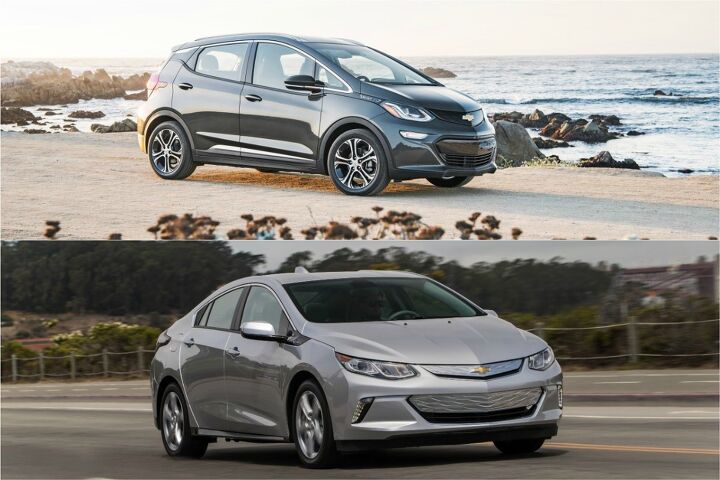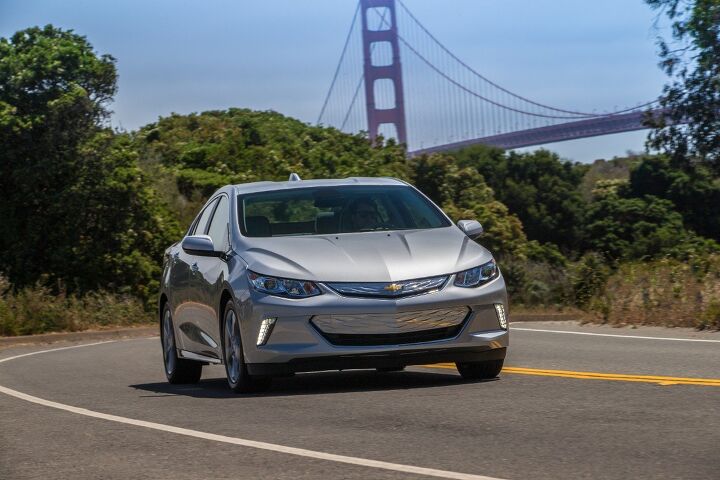#government
Trade War Watch: Congress Tries a New Tactic to Block Auto Tariffs
With the United States’ government shutdown now over, lawmakers have an opportunity to work together as promised. Interestingly, one of the first pieces of bipartisan legislation to emerge after the federal bureaucracy resumed operations involves a plan to severely limit presidential authority to impose tariffs for national security reasons.
The Bicameral Congressional Trade Authority Act, introduced by Senators Patrick Toomey (R-PA) and Mark Warner (D-VA), along with House Representatives Mike Gallagher (R-WI) and Ron Kind (D-WI), would require the president to get approval from Congress before taking any trade actions based on national security threats. If passed into law, the bill would let the Legislative Branch effectively block the tariffs being proposed by the Trump administration on automobiles and automotive parts.
Trump Officially Nominates Andrew Wheeler to Head the EPA
President Donald Trump nominated Andrew Wheeler as administrator of the Environmental Protection Agency on Wednesday, setting him up to permanently fill a position he’s already occupied since July.
Trump praised Wheeler in November his “fantastic job” as acting administrator of the EPA following the July 2018 resignation of the agency’s former scandal-ridden head, Scott Pruitt. This month, the president submitted Wheeler’s formal nomination to the Senate. There’s still a ways to go before the ex-lobbyist’s confirmation, though, as the Senate will no doubt be critical of his relatively recent ties to the coal industry.
Ram and Jeep EcoDiesel Owners Stand to Earn a Nice Little Bonus in Fiat Chrysler Settlement: Report
As we told you yesterday, a settlement in Fiat Chrysler’s diesel quandary could come any day. Today, we’re telling you it could come, well, today.
According to sources who spoke to the New York Times, FCA plans to settle a 2017 Justice Department lawsuit by making a collection of 104,000 trucks and SUVs greener, while adding an average of $2,500 to owners’ wallets.
Rapide Attempts To Vanquish Brexit: Aston Martin Stockpiling Cars in Germany
Brits have now been grappling with their Brexit situation for what now seems like an interminable amount of time, with no shortage of digital ink and political hot air spilled about the subject.
Looking past all the posturing, however, a disorderly departure from the EU could contain serious ramifications for companies making products in Britain, and fancy-pants Aston Martin has initiated a contingency plan to handle a “no deal” Brexit. Prepping for a worst-case scenario, the company is stockpiling cars in … Germany.
You Can Fight Oregon and Win: Five-year Battle Sparked by Red Light Ticket Ends
We’ve told you before about the legal saga of Mats Järlström, a Swedish-born man living in the green and uber progressive state of Oregon. A few years ago, Järlström found himself in the crosshairs of the Oregon Board of Examiners for Engineering and Land Surveying after performing and submitting an analysis of his town’s traffic light timing — specifically, the duration of the amber light cycle.
What ensued was a constitutional legal battle over over the ability to refer to one’s self as an expert in the field of their expertise; in this case, engineering.
This all came about after Järlström’s wife received a red light camera ticket.
Confirmed: Chevrolet's Bolt Loses Its Full Tax Credit In April, but Not the Doomed Volt
Good news for would-be Volt owners? Not really. Chevrolet’s soon-to-be-discontinued plug-in hybrid won’t live long enough to suffer the indignity of a halved federal EV tax credit. It’s dead in March, though remaining examples of the car everyone should want will no doubt linger on lots through the spring.
On Wednesday, General Motors announced, as expected, that it became the second automaker to pass the federal government’s 200,000-vehicle threshold, kicking off a three-month countdown to a chopped incentive.
House Has a New Plan to Pass Self-driving Bill in 2019
Frustrated with House Democrats’ inability to push through legislation on autonomous vehicle development and testing, Rep. Debbie Dingell (D-MI) believes the new Congress needs to reassess the situation and rally together behind a tweaked proposal Senate Republicans are still willing to back.
Dingell claimed Rep. Frank Pallone (D-NJ), who will chair the Energy & Commerce Committee when Democrats take control of the House, and Rep. Bob Latta, (R-OH), who currently heads the digital commerce subcommittee, have agreed the smartest plan is to build consensus in the Senate so both chambers can deliberate on the same bill — potentially getting something done in the process.
Report: Certain Canadians Getting Boned At the Gas Pump
Barely a day goes by when the TTAC chatroom doesn’t devolve into a discussion of the weird differences between the U.S. and Canada. Chris Tonn wants to take a Nissan Micra across Canada, eating various poutines along the way, while this writer drools over certain (unavailable) civil liberties offered just 45 minutes to his south. Vast gulfs in pricing and taxation usually spring up as topic fodder, too.
Given the amount of money yours truly forks over for gas, there’s additional drool reserved for U.S. pump prices. Various taxes heap, on average, an extra 38 cents on every liter of unleaded up here. That’s an extra $1.44 for each gallon, and the roads aren’t exactly paved in gold.
Now, imagine learning you’ve been paying way too much for three straight years.
Ohio Senators Want to Know GM's EV Plans, Demand American Production
Two senators in Ohio, home to the unfortunate Lordstown Assembly plant, want answers from General Motors. Following the automaker’s announcement that it will withdraw the plant’s sole product — the Chevrolet Cruze — in March of 2019, leaving the factory’s remaining 1,500 workers out of a job, politicians on both sides of the border want to know what GM’s plans for electric and autonomous mobility mean for their constituents.
If GM’s truly planning on springing a wave of electric vehicles on American buyers, Congress wants assurances that American workers will build them.
Damage Control: GM Attempts to Smooth Things Over in Washington
General Motors’ restructuring plan has placed it under heavy fire. As it turns out, domestic job cuts and factory closings aren’t all that popular on Capitol Hill or in middle America, especially when a company appears financially healthy. Go figure.
Hoping to mitigate the social damage that’s only guaranteed to escalate next year, GM CEO Mary Barra took a trip to Washington to speak for the automaker. However, there wasn’t much backpedalling or apology-making coming from the executive. Instead, Barra’s presence served only to show that the company is capable of listening while simultaneously reinforcing that there will be no changes made to the plan.
The Government's Coming for Your Classic Car, but They Can't Take It All: Aston Martin CEO
Aston Martin CEO Andy Palmer isn’t very trusting of his government’s plan to ban all internal combustion vehicles by 2040. The 55-year-old Brit had a few things to say about the UK’s intentions last year, none of them very kind to policy makers.
Since then, it seems he’s grown even more concerned about the legions of old Astons prowling the carriageways of his fair country. With this in mind, the automaker developed a way to “future-proof” emissions-spewing classics and keep them from becoming illicit Red Barchettas sought out by agents of a puritan superstate. You’ll have to hand over your inline-six or V8 first, but don’t worry — you can put it back.
White House Wants to End EV Subsidies ASAP
White House economic adviser Larry Kudlow announced Monday that the Trump administration is seeking an end to federal subsidies on electric cars. Interestingly, the move appears to be related to General Motors’ plant closings and layoffs. The company’s restructuring plan hasn’t gone over well with policy makers or the American public, with many accusing the automaker of abusing years of tax breaks, only to reduce its workforce as a way of pursuing new technologies, businesses, and further bolstering its profit margins.
However, cutting GM out of the electric vehicle subsidies deal is more likely to impact its rivals than anything else. The company said it’s on the cusp of the EV tax credit ceiling already, with the gradual phase-out of those incentives likely to take place through 2019. Yet Kudlow pointed to the elimination of the credits as one way of punishing GM for eliminating so many jobs, echoing President Donald Trump’s threats from last last week.
“As a matter of our policy, we want to end all of those subsidies,” Kudlow explained. “And by the way, other subsidies that were imposed during the Obama administration, we are ending, whether it’s for renewables and so forth.”
French Motorists Spark 'Yellow Vest' Protests and Riots Over Fuel Taxes and Regulations (UPDATE: New Green Taxes to Be Suspended)
Despite everything you’ve heard about road rage, motorists tend to be pretty meek — at least when it comes to government regulations, and particularly in Europe. They passively accept, and pay for, mandated safety and emissions regulations as well as for taxes on the fuel for their vehicles. Perhaps, though, they aren’t as passive as we think. For the past three weeks, France has erupted in massive protests and riots that are being called the Gilet Jaunes protests, demonstrations that are spreading to Belgium and the Netherlands, and those protests were spearheaded by motorists.
Gilet Jaunes is French for “yellow vests,” which many of the protesters are wearing as a statement against intrusive, expensive, and sometimes petty government regulations and taxes. (For the past decade, French motorists have been required by law to carry bright yellow/green safety vests in their vehicles and wear them in the case of a breakdown.)
QOTD: Pointing Fingers at General Motors?
By a wide margin, the most important automotive-related news this week has been General Motors’ impending closure of five manufacturing facilities across North America. Accompanying the closures are losses of thousands of jobs and the discontinuation of six passenger car models over the next year or so.
Who’s to blame here?
Everyone Who's Not a Shareholder Is Reportedly Angry Over GM's Decision to Slash Jobs
The big news this week is General Motors’ decision to cull its lineup, closing plants and sacking about 15 percent of its North American workforce in the process. According to Chief Executive Officer Mary Barra, GM’s official reasons for doing so are all part of its grand plan to transition to a company focused on electric vehicles and self-driving cars.
While we harbor a vague suspicion that the automaker is actually trying to prepare itself for an incoming economic downturn, leaving itself with plenty of financial wiggle room, GM currently enjoys relatively healthy profits (thank you, truck sales) and a lofty share price. In fact, GM shares rose nearly 5 percent after it announced the shuttering of several plants in the U.S. and Canada, cutting as many as 14,800 jobs.
Unfortunately, GM’s investors seem to be the only group that’s pleased with the decision. Everyone else appears to be absolutely furious.



























Recent Comments